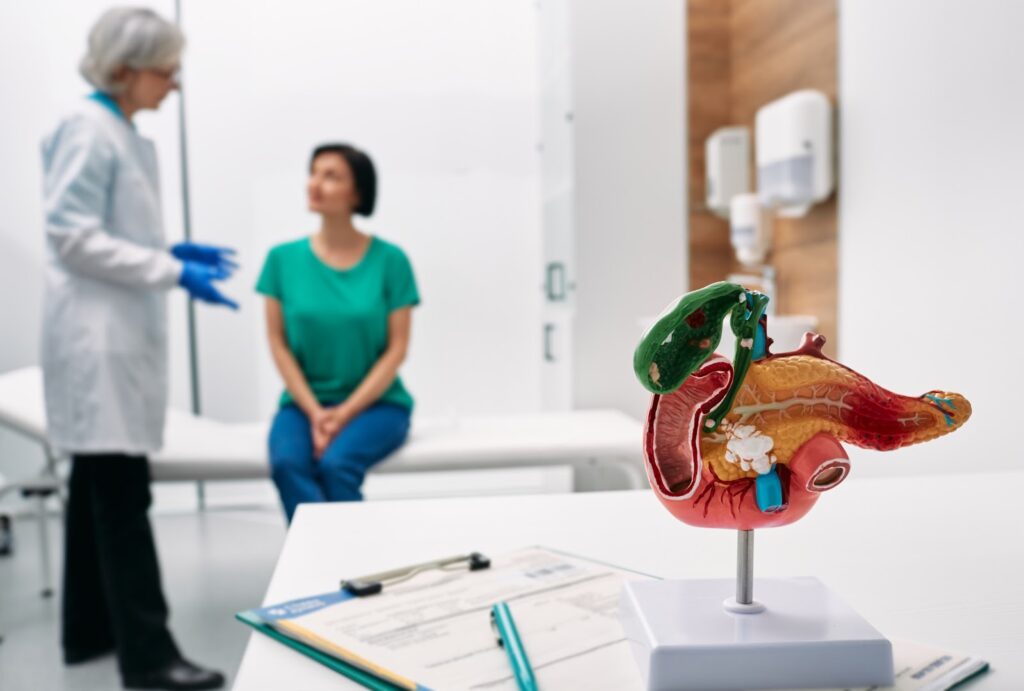What Are the Side Effects of Long-Term Use of PPIs?

Proton pump inhibitors (PPIs) are a class of medications that are commonly used to treat acid-related disorders. PPIs help reduce the amount of acid that your stomach makes. Some common conditions for which they can be used include heartburn and the treatment and prevention of stomach ulcers. Available with or without a prescription, some well-known PPIs include Dexilant, Nexium, Prevacid, Prilosec, Protonix, Aciphex, and Zegerid. While these medications are helpful with relieving discomfort, some unintended long-term side effects have been recorded. To help you have the best understanding of long-term PPI use and side effects, we put together a little crash course.
Clostridium Difficile Infections
Clostridium difficile is a bacterium that can cause symptoms ranging from diarrhea to life-threatening inflammation of the colon. Several studies have indicated an increased risk of C difficile infections for individuals using proton pump inhibitors. Gastric acid is an important defense mechanism against pathogens colonizing the stomach and intestinal tract. If the acid is suppressed, prolonged exposure to the bacteria can lead to a more virulent strain. Patients who are at an increased risk of C difficile, including the immunocompromised, the elderly, hospitalized patients and those taking broad-spectrum antibiotics, should use PPIs with caution.
PPI Related Pneumonia
Although seemingly unrelated, the respiratory and digestive tracts separate, but are neighboring systems. Starting at the mouth, the two tracts separate at the back of the throat and fork into different tubes. Occasionally, especially when we lie flat, small amounts of stomach content travels up the esophagus and gets into the trachea. Since PPIs cause acid suppression, bacteria are more likely to proliferate in the less acidic environment. This can potentially lead to microaspiration and lung colonization, which are associated with an increased risk of developing community-acquired pneumonia (CAP).
Hip Fractures and Osteoporosis
A common question among those who are considering using PPIs is if they can cause hip fractures and osteoporosis. There have been a number of studies to determine if PPIs contribute to such issues. Overall, it has been found that the use of PPIs may be a risk factor for the development of osteoporosis, as well as fractures that are caused by the condition, only with the prolonged usage of PPIs. However, there is still not much data concerning exactly how PPIs and osteoporosis are linked, so it is advisable to only use the dosage recommended by your doctor if you are prescribed PPIs.
Dementia
PPIs have received negative publicity in the past because of the belief that they are connected to the occurance of dementia. However, recent studies have found that there is no convincing evidence that long-term PPI use will have a negative impact on the brain. This potential side effect is a concern for many who have been prescribed PPls, but through all of the recent studies that have been conducted, no direct causal relationship between the use of PPIs and the occurance of dementia, Alzheimer’s disease, or cognitive impairment has been found.
Kidney Damage
When prescribed PPIs, many people worry about the potential risk of kidney damage. Multiple studies have been performed to determine if kidney issues should be a concern among those who use PPIs long-term. Although observational studies have suggested an association, there is not enough evidence to prove a causal relationship.
Gastroenterologists in Somerset County, New Jersey
Due to their superb efficacy and low toxicity rate, PPIs are one of the most-prescribed medications by healthcare providers. Proton pump inhibitors have proven to be very effective and safe in managing GERD, healing peptic ulcer disease, and reducing the incidence of nonsteroidal anti-inflammatory drug–associated gastropathy. As with any medication, consult with your primary care doctor before seeking treatment. For more information about PPIs and other questions about the digestive system, give us a call at (862) 217-5141. At Digestive Healthcare Center, our medical specialties and service revolve around a providing you with exceptional gastrointestinal care. Don’t live your life in pain, schedule your appointment today!
Make an Appointment for Comprehensive Digestive Care in NJ
At Digestive Healthcare Center, we want each patient at our three offices in New Jersey to feel confident about their digestive health. We encourage you to contact us today to make an appointment with one of our expert gastroenterologists – don’t wait to start putting your digestive health first!
Recent Blogs
Learn more about all things digestive health and wellness by checking out our recent gastroenterology blogs.

Diverticular disease and diverticulitis are related digestive health conditions that affect the large intestine (colon). With diverticular disease, small, bulging pockets develop on the lining of the colon. When these pockets become inflamed or infected, the condition is called diverticulitis. They are very common – especially after age 40 – and rarely cause problems. At […]

Many Americans like to set New Year’s resolutions to make positive lifestyle changes such as improving their diet and going to the gym. However, March is also a great time for a healthy focus, especially as the long winter season comes to an end. National Nutrition Month, sponsored by the Academy of Nutrition and Dietetics, […]

Gallstones form when bile stored in the gallbladder hardens. Your gallbladder is a small, pear-shaped organ on the right side of your abdomen, just beneath your liver. It holds a digestive fluid called bile that’s released into your small intestine. Gallstones are pebble-like pieces of concentrated bile material, typically made up of cholesterol or bilirubin […]
























